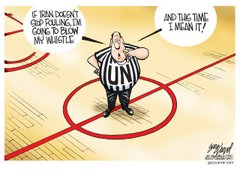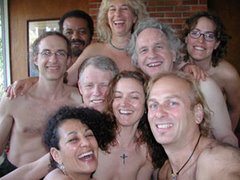Obama's Audacity (Or Lack Thereof)

Philosopher Hanna Arendt always like to say that “politics is not the nursery”, but if one was to take a quick look at today’s political climate, one will see this proved untrue if not undeniably false. Triangulatio, which is the practice of playing opposing forces against one another lest by any chance one’s own principles be considered “offensive”, is now widely practiced in political campaigns.
Politicians like Barak Obama and our own Deval Patrick. who subscribe to this rhetoric, insist that arguments between opposing points of view creates more problems than solutions. It polarizes anyone who dares stand anywhere that isn’t the middle. This goes against the very point of politics and the process that surrounds it. Politics and government exist to help humanity better solve disputes amongst ourselves. Denying the necessary fact that politics deals solely in disagreements as opposed to agreements tends to produce a chilling effect against folks who don’t stand squarely in the center. If you take a stance, you’re deemed ‘controversial’ or ‘extreme’.
The simple fact is that in times of conflict, the center cannot hold, and if the best of the best lack conviction, it gives way. To borrow (or continue to ) from William Butler Yeats- to the worst, which are full of passionate intensity.
So now we’ve got Barack Obama, whose autobiography, “The Audacity of Hope” has become a neo-manifesto for ‘progressives’. My Father-In-Law leant me the book to read, and as I didn’t pay for it, I felt it wouldn’t hurt to give it a read. As far as I could tell from my own reading, Obama shows a tendency, even an outright eagerness, to take positions not conspicuous, let’s say, for their audacity. Perhaps his most prominent position in this regard is his ‘stand’ against genocide in Darfur, which really isn’t a ‘stand’ against or for anything, seeing as there is no such thing as a pro-genocide movement to ‘stand’ against.
In fact, Obama seems to be full of this sort of blather. When Obama declared he was running for the Presidency in Springfield, IL., he roused up the famous Lincoln-Douglas debates in 1858, in which, as he told it, Lincoln “called on a divided house to stand together.”
It would have been awesome is Lincoln had, well, actually ever said that. What Lincoln did argue, actually and implicitly, was that the house would ‘cease to be divided,’ which is not quite the same. All the previous compromises made by moderate governments had amplified the danger of complacency. When Lincoln judged that a reckoning of some kind was coming no matter what, it was an attack on the establishment, moderate government, which, far from being too adversarial, had been complacent about those who wanted to split the country for far too long.
Harry Jaffa, a leading, if not THE leading historian on the subject, claimed that Lincoln represented a ‘great link in the chain of events that led to secession and civil war.’ So rather than Obama’s preference for a common front, its more in line with common sense to accept, as Lincoln did, that politics is division by definition.
This 100%, testosterone-free ‘rising star’ of the Democratic party is aiming, like Deval Patrick did here in Massachusetts, to turn the political arena into a nursery. Like Governor Patrick, Obama’s supporters would likely struggle to name his greatest accomplishment, aside of course, from his impeccable dental hygene and making the initials “B.O.” not be so gross anymore. One hopes this juvenile attempt will miss it’s mark, if only because it has little to offer it in a time when, with actual enemies presenting themselves against western civilization as a whole, politics in the western world’s leading country should be serious business. Obama’s triangulation politics, in contrast, are meant for show, and they ought to be regarded and treated as such.
After all, as Ann Coulter said in a column; “If Obama's biggest asset is his inexperience, then if by the slightest chance he were elected and were to run for a second term, he will have to claim he didn't learn anything the first four years.”











No comments:
Post a Comment